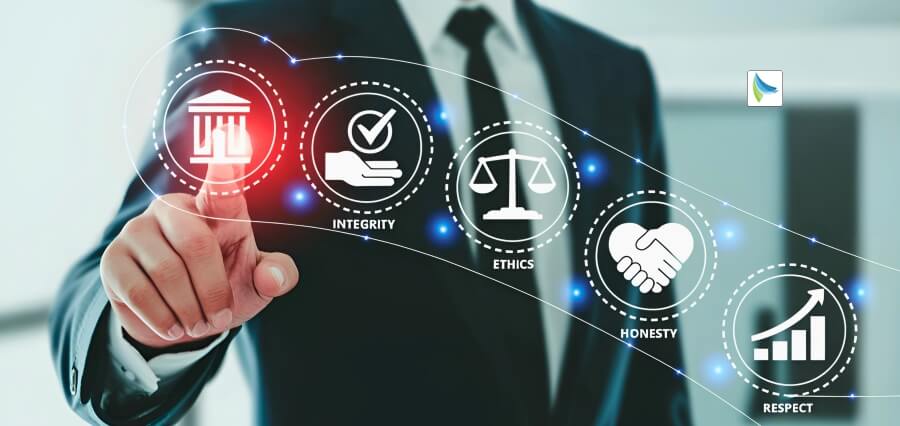The Moral Compass
The world is dominated by technological revolution, global instability, and increasing stakeholder expectations, and leadership has never been more complicated and more impactful. The leaders’ decisions today influence not only the future of their corporations but also the whole society. While dealing with these fast changes and competitive pressures, one thing that can still be relied upon is a moral compass.
Responsible leadership is not centered on being in charge or on having the ambition, rather, it revolves around the qualities of integrity, empathy, and accountability. This is mainly about keeping progress and principles at the same time. A leader guided by a moral compass does not only create companies that achieve success but also, he/she creates a legacy that lasts.
The Foundation of Ethical Leadership
Self-awareness is the starting point of responsible leadership. A moral compass does not guide the decisions through strict rules but through the values like honesty, fairness, respect, and transparency. These values provide the framework for traversing the gray areas where business interests meet ethical considerations.
Good leadership calls for bravery. This bravery is exemplified in the ability to take the right decisions even when they are the hardest and least profit-making ones. It also requires that what leaders express in words corresponds to what they perform in action thereby ensuring that honesty is not a temporary yet a permanent structural one. When decisions are based on principles, organizations gain the trust of their stakeholders, and trust is the stepping-stone upon which long-term success is built.
Beyond Compliance: The Call for Conscious Leadership
Nowadays companies are doing business in such a setting that adhering to laws is no longer enough. The different stakeholders expect the companies to dare to voice their opinion concerning the social, environmental, and governance issues. Responsible leaders do not stop at merely ensuring compliance but rather they proceed to conscious leadership which is a leadership approach that acknowledges the interdependence of business and society.
As such, reflecting on the wide-ranging influence of decisions on employees, communities, and the planet is essential. Being empathetic and inclusive leaders mean, amongst other things, allowing for the effects of the different viewpoints on the innovation and, at the same time, creating the places where both diversity and the coming of age of the innovation thrive. Conscious leaders, therefore, consider profit and purpose as not being mutually exclusive but partners, the latter being a driver of sustainable growth while at the same time making a contribution to the common good.
Accountability and the Long View
Moreover, one of the signs of mature leadership is a feature called accountability—a readiness to take the credit of decisions, learn from them, and keep evolving. Real accountability goes far beyond business results and includes adherence to moral values and giving back to the community.
Conscious leaders driven by a sound value system think further than the present. They decide against short-term benefits and opt for long-term, eco-friendly results, being aware that trust takes years to build and only seconds to lose. By making responsibility part of the organization’s DNA, they are removing the need to be inherently honest—the great majority of people will be.
Building a Legacy of Responsibility
The key to the longest-lasting leaders is not only the remembering of their outcomes but also of their core beliefs. Such leaders ignite the fire of integrity in others, thereby producing a widely spread effect that goes far beyond their leadership era. The heritage of accountable leadership is deeply rooted in the unceasing harmony between one’s deeds and moral codes, thus shaping a culture which values both purpose and economics equally.
The kind of people who think in this way will be a source of support for the years to come when they encourage and guide them to see leadership, not as a privilege, but as a responsibility. They realize that their legacy will be measured not by the things they keep for themselves but by the ones they give away—their people, their communities, and the planet.
Conclusion
Having a moral compass does not make the ride easier, it rather helps to find the way when things are unclear. It is the very source of power for leaders to dare making those decisions which are difficult and do it with empathy and confidence. In this way, their sphere of influence elevates instead of diminishing.
Responsible leadership should not be viewed as an endpoint, but rather as a never-ending journey, which requires the leader to be reflective, humble, and brave. Those who choose the path of integrity not only build profitable businesses but also leave behind a leadership model that can withstand the test of time.
Ultimately, success can be measured in terms of profits, but legacy is measured by principles. It is the moral compass that is most helpful in leading to both – success and legacy – as it is quite consistent, steady and true.













